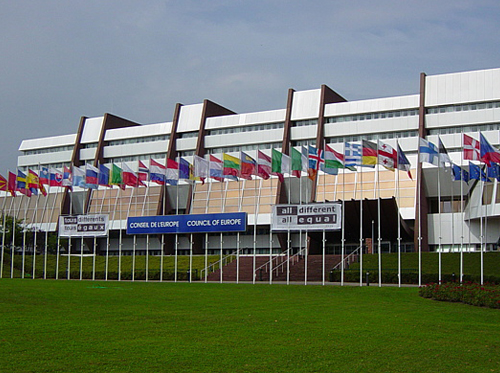Late political order with unknown target

Only four days left to a day of constitutional referendum vote the Venice Commission, whose primary task is to assist and advise individual countries in constitutional matters, has issued an urgent statement upon the request of the PACE.
The hasty assessment of the commission is tuned to a pessimistic tone, which is not surprising for all those accustomed to hear bias and dual standards from European organizations.
The commission seems to be really in a hurry while making its conclusion, as it contained obvious mistakes far from reflecting the reality. The Commission was in such a hurry to make a statement on the upcoming referendum that it didn’t notice its technical mistakes, gaps and violated its internal procedures while studying the referendum bill. It even made a reference to Article 159, which totally lacks.
Using an imperative language for its document the commission in fact violated the right of nations for sovereign decisions. Azerbaijan is being addressed through ultimatums.
Such institutions as the Venice Commission were created to back the reforms in countries, but not to intervene in the internal affairs, through attempting to mislead the society and to push it to chaos.
For instance, the statement like "Azerbaijan will hold constitutional referendum that reportedly “would severely upset the balance of power” sounds more as a political order than advice to a country.
The question then arises as to why the Commission makes such a statement only few days has left to the referendum despite the fact that the referendum bill was revealed in July? Why did the Commission refuse to work with the government of the country to study the referendum bill and instead criticized the government for its attempts to reform and upgrade the state management system? Is this statement a pressure tool to the referendum then?
The government of Azerbaijan has repeatedly announced that the primary aim of the amendments and supplements to be made to the current Constitution is to improve the state management system.
The Venice Commission’s main dissatisfaction is related to strengthening of the vertical of executive power, clarified Shahin Aliyev, head of Department of Legislation and Legal Expertise of Azerbaijani Presidential Administration, adding this is about the establishment of vice-president’s post in case of adoption of the referendum act.
“The Venice Commission’s conclusion says that vice-presidency is not democratic. Which international document envisages such a democratic standard? There is no such a democratic standard. If the president is unable to fulfill the presidential duties, the vice-president fulfills them in the U.S.,” he added.
“If the vice-president is unable to fulfill the presidential duties, then unelected ministers fulfill those duties. No one calls this undemocratic,” noted Aliyev.
The ongoing changes in the geopolitical situation, global threats, including terrorism, extremism, vulnerable economic situation appeared due to declining crude prices, social and economic challenges, as well as the increasing role of Azerbaijan in the region required various transformations in the country. Amid these changes, the Cabinet of Ministers failed to prove itself as a driving force to foster the reforms.
The Cabinet of Ministers couldn’t play a leading role in the economic situation which changes every month and in the financial policy which also changes every month, because the institutional structure of the Cabinet of Ministers, its activities are not meant for carrying out this work. The circumstances necessitated having an institution for operative measures.
Another dissatisfaction of the Venice Commission is related to giving the president the authority to dissolve the parliament, although such practice is widely used in a number of countries.
“A stalemate situation can emerge in the parliament’s work as well. The media reports said that in a number of cases, the draft laws submitted by the president were not adopted in the parliament,” said Shahin Aliyev. “Then how can France’s president easily dissolve the parliament?”
There is another note of the Commission as well. “The extension of the presidential mandate from five to seven years “cannot be justified” given the already very strong position of the President, who since 2009 can be re-elected without term limits,” the document said.
Why Azerbaijan is being criticized for this while Ireland, Israel and several other countries already apply this practice. The extended presidential mandate will have some simple and obvious pluses. The reforms and state programs will be realized until the end, while it will be possible to bear fruits of the reforms more effectively.
With four days ahead of voting day, most voters may have formed their position on the document. So it is hard to believe the late document to have any impact in any way. Then, the true target of the document remains vague...
Here we are to serve you with news right now. It does not cost much, but worth your attention.
Choose to support open, independent, quality journalism and subscribe on a monthly basis.
By subscribing to our online newspaper, you can have full digital access to all news, analysis, and much more.
You can also follow AzerNEWS on Twitter @AzerNewsAz or Facebook @AzerNewsNewspaper
Thank you!
